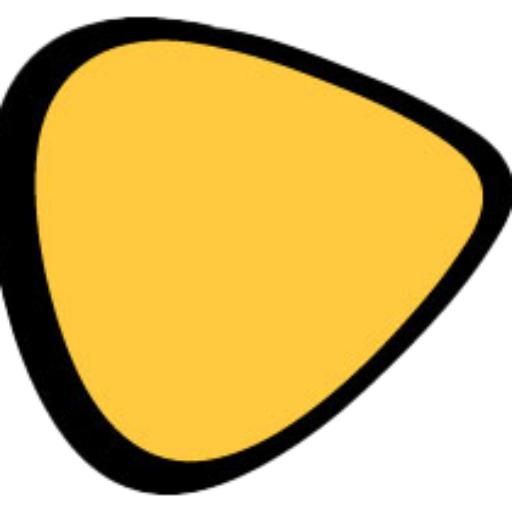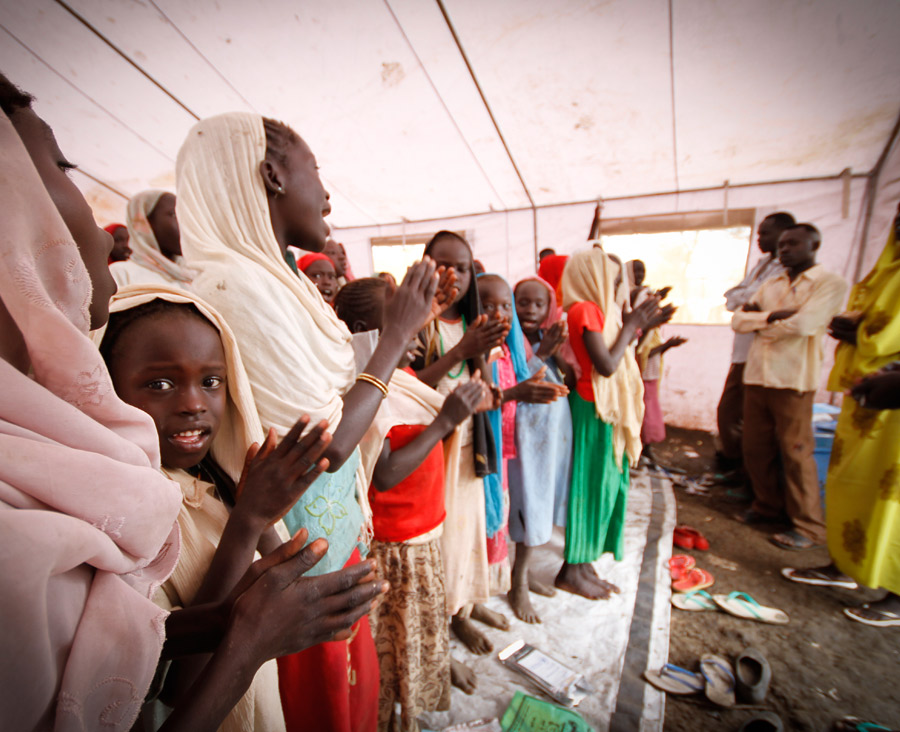Plumes of dust mushroom upwards inside the large white tent as young boys stamp their feet in time to the ululating song of the iridescently shawled girls.
The Red-Riding hood that covers the knotted braids of 10-year-old Iklas Bashir flaps as she sways her head in time to the song.
The message of the song—sung in the Sudanese dialect of Ingessana—is one of both resilience and hope. A reminder that, as screwed up as things are right now, life has to go on as normal.
Now that we’ve been displaced / Let’s go back to school and study.
Welcome to Abdullah Aladi Primary School, a makeshift school established by Save the Children in Yusuf Batil refugee camp tucked away in the remote northeastern corner of the world’s newest nation.
Yusuf Batil is just one of four camps in South Sudan’s Maban county, now home to more than 110,000 refugees, and like Iklas, many are mere children. Some 37,000 of these refugees currently inhabit Batil, living in the thousands of white tents that are crammed into six square kilometres. Most of the refugees are from the same ethnic group as Malik Agar, the rebel leader who is heading the SPLM-North’s fight against the Khartoum government.
The conflict started as a dispute over the oil-rich region of Abyei in the months leading up to South Sudan’s secession in July 2011. It has since spilledover into the northern Sudanese states of South Kordofan and Blue Nile, where many fought for South Sudan’s independence.
But when a peace agreement was signed in 2005, ending more than 21 years of civil war, these two states remained part of northern Sudan, leaving many feeling betrayed and isolated.
The rebel group, banned by Sudan’s leader Omar al-Bashir, has accused the president of wanting to turn Sudan into an Arab Islamist state where religious and ethnic minorities are persecuted.
The refugees in Yusuf Batil camp say they fled the Sudanese state of Blue Nile after government planes pounded their homes with bombs daily for two months. The Sudanese government denies targeting civilians with bombs.
Up until a few months ago, Iklas says life as it always was. She says she still remembers the day the antiquated Russian-made Antonov bombers first came.
Iklas is shy, and talks with her hand to her face.
“I was so happy,” she says. “I’d just scored my first goal for my soccer team.”
Iklas had then returned home to help her mother prepare for dinner.
That was when the planes came, swooping down on her village, initiating a relentless bombing campaign that would continue daily for months, destroying her family home and crops.
That first day Iklas says she flung herself crying to the ground, yelling for her parents.
But Iklas exhibits the remarkable resilience of youth. Iklas says she is not sad about her village being bombed, or having to leave her friends behind.
“I was sad I didn’t have time to gather my school books before we had to flee our home,” she says.
After two months of bombing, Iklas and her parents left their village. It took them weeks to walk to Yusuf Batil; they subsisted on little more than dirty surface water, and tree bark and leaves.
Now, for a few hours each day, more than 300 children like Iklas come to this large tent to learn rudimentary English and arithmetic. They have also been taught songs that drive home important messages. One song stresses the importance of personal hygiene in the crowded camp. The teacher, Hasan Bashir, leads the song and the children clap, belting out the lyrics back at him.
Every day, every day / I clean my nose / Every single morning / OK, good, OK
Every day, every day / I wash my hands / Every single morning / OK, OK, OK.
Bashir says it was his idea to get the children learning these songs.
“Now that these children are likely to grow up in South Sudan, it’s been a good way to teach them English,” he says. “But more importantly, it’s a way to drill into them the need for good hygiene.”
It is now the rainy season in South Sudan and Yusuf Batil has become an island. The constant squalls have flooded the camp and many refugees don’t use the pit latrines, choosing instead to urinate and defecate in the pools of standing water – the same water they drink from, and wash in.
A hand-drawn poster adorns the wall of a Médecins Sans Frontières in the camp—it illustrates to the refugees why it’s unsafe to drink the surface water in the flooded camp. But a recent hepatitis E outbreak suggests the campaign has not been successful.
But Bashir thinks his catchy “hygiene song” is making a difference by making a game out of their daily ablutions.
“Did you wash today Iklas?” he asks. “Did you use water from the borehole?”
She nods in the affirmative.
Iklas would like to be a teacher when she grows up. She has started attending school in the camp so she can learn English. She counts haltingly up to 25, missing an occasional number.
“I’m happy here. I feel safe and when the bombing stops we will go home.”
Iklas re-positions her hood over her head, and heads back into the labyrinth of UNHCR-labelled tents, humming the tune of the hygiene song to herself.

